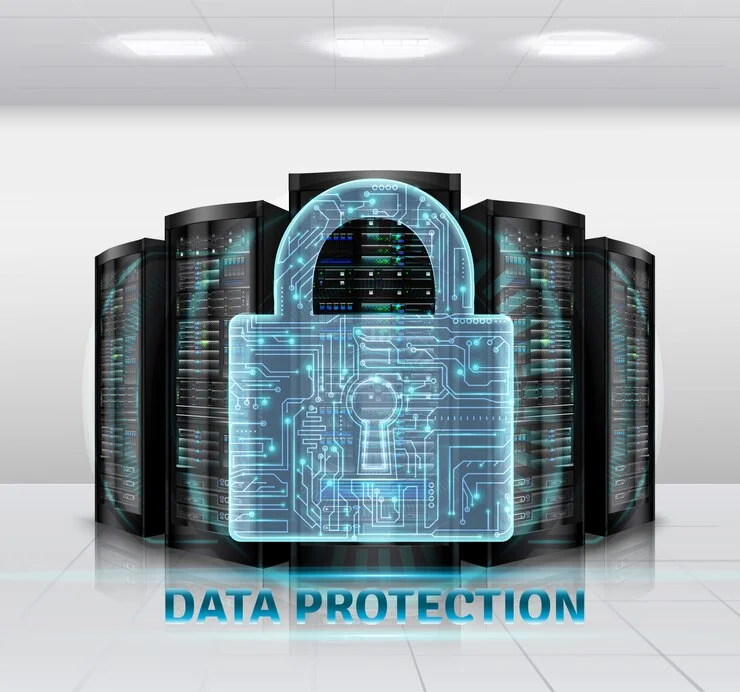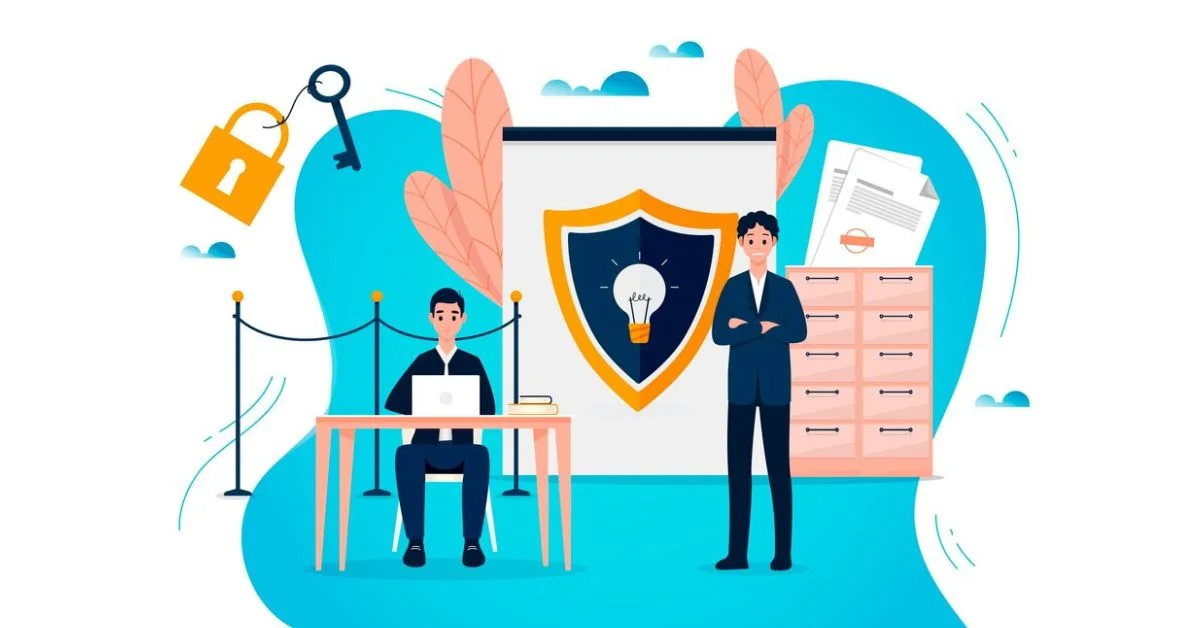EDUCATION
5 Common Misconceptions About CMMC And Cybersecurity

The defense sector is one of the high-stakes areas. Upholding effective cybersecurity practices is a matter of necessity. As such, organizations that transact with the Department of Defense (DoD) must implement the Cybersecurity Maturity Model Certification (CMMC) to safeguard sensitive information that could jeopardize national security against cyber threats.
However, navigating CMMC isn’t a smooth ride, and this is where many defense contractors find themselves. The plenty of misconceptions about what, who, and how make navigating it more difficult. By understanding what’s required of you to comply, you can meet the set standards and leverage opportunities to work with various government agencies.
Imagine this: minimal cyber risks, increased credibility, and reduced risks to suits from inadequate data protection. All these could mean business success. But it all starts with debunking these misconceptions- that’s what we’ll look at here. Read on to find out!
1. If We’re NIST Compliant, We Don’t Need CMMC

There’s a common misconception that CMMC is essentially the same as NIST 800-171. It makes contractors believe they have met the CMMC requirements if they are NIST-compliant. After all, if they’re basically the same, why bother? However, this is far from the truth. While CMMC draws from NIST guidelines, they are not identical. Yes, they share many similar controls, but CMMC goes further by expanding on NIST 800-171, introducing additional requirements.
The reality is that organizations must comply with and maintain CMMC requirements. So, if your company monitors network security as per NIST, you still need to be compliant with CMMC—keep login records and review security protocols. It adds a security layer that nature accountability on top of the basic NIST requirement.
Additionally, CMMC certification is done by Certified Third-Party Assessor Organization (C3PAO), which is still all about accountability. This isn’t a recruitment with NIST.
When working with DoD, understanding the full CMMC compliance requirements is important. It helps you better protect data and increase your chances of winning contracts. So, stay updated with the latest CMMC news to align yourself with cybersecurity standards as they evolve.
2. CMMC Won’t Affect You If You Don’t Work Directly with the DoD
Many companies mistakenly believe that CMMC applies only to direct DoD contractors. The reality is that it affects you as long as you are along the supply chain. So, if you provide indirect support to DoD contractors, you technically work with them, and CMMC likely affects you, too.
This misconception can have serious consequences for businesses that don’t prepare. For instance, a small IT service provider might think they’re safe from CMMC requirements because they don’t handle sensitive DoD data. However, if they work with a contractor bound by CMMC, they might also be required to meet CMMC standards to avoid compromising positions that could make them lose important contracts.
On the flip side, CMMC compliance can open new doors for companies even if they are not in business with them. So, becoming CMMC compliant can help organizations earn trust and expand their network in the industry.
3. Achieving CMMC Certification Is Quick and Easy

CMMC certification is more tasking than many realize. The only levels that might be a bit straightforward are levels 1 and 2, which require a self-assessment. However, level 3 isnt exactly a walk in the park; there are more practices to comply with, and a third-party assessment might even be required depending on the nature of the contract.
CMMC level 3 requires a formal and structured assessment by an accredited C3PAO. That means you need more than a simple check-the-box exercise; organizations must pass a comprehensive evaluation to prove their cybersecurity maturity.
Preparing a CMMC complaint could take a couple of months as you go up the certification levels. That’s because contractors need to undertake advanced measures. Overcoming this misconception is key to preparing early by getting the right resources. Contractors should budget for time and resources to ensure they’re ready for CMMC certification.
4. Only Large Contractors Need to Worry About CMMC
There’s a common notion that only large, established defense contractors must comply with CMMC. CMMC applies to all companies within the defense industrial base, regardless of size, as long as they handle sensitive data, CUI and FCI. In fact, CMMC is structured with small and medium-sized organizations in mind with its scalability factor. Besides, being small doesn’t shield you from cybersecurity threats, so you must comply and get certification for your level. These certifications are not as demanding as the advanced ones that large companies follow.
5. CMMC Certification Guarantees Protection Against Cyber Threats

100% protection against cyber threats is another myth around CMMC. CMMC aims to ensure companies have baseline controls and mature practices to manage known risks. While a strong foundation is key to enhancing security, it doesn’t guarantee total immunity.
However, becoming CMMC compliant means setting up the right protocols, conducting ongoing monitoring, and regularly reviewing and updating. By doing so, organizations can significantly reduce their security against threats.
It’s all about being vigilant and responding promptly to situations to minimize the effects of cyber attacks. To achieve this, employees and the entire organization must be cybersecurity-aware and make it a culture that CMMC aims to achieve.
Conclusion
These common CMMC misconceptions make it hard for companies that work with the DoD directly or indirectly to make the right decisions and be CMMC compliant. That’s a huge risk that exposes sensitive information to attacks.
With a solid understanding of the facts, companies can integrate CMMC practices into their cybersecurity strategies to enhance their security posture. By overcoming these misconceptions, you can take the right steps to build an effective cybersecurity defense and stay on top of your game.
EDUCATION
Inside the Scrubs: Nurse’s Journey

Nursing is a dynamic and rewarding profession that demands a great deal of compassion, technical skill, and resilience. Every day, nurses face challenges ranging from managing patient care to keeping up with rapid advancements in medical technology. An integral step in this journey is passing the National Council Licensure Examination (NCLEX), a pivotal exam that assesses a nurse’s readiness to practice safely and effectively.
The Path to Becoming a Nurse
To embark on a nursing career, individuals must first complete an educational program suited to their career goals. Options include a diploma in nursing, an Associate Degree in Nursing (ADN), or a Bachelor of Science in Nursing (BSN).
Each pathway offers a unique blend of practical training and theoretical knowledge. For those aiming for a comprehensive education with better long-term career prospects, a BSN is advisable, as it opens doors to advanced practice roles and higher earning potential.
The NCLEX is crucial for obtaining licensure as a registered nurse (RN) or licensed practical nurse (LPN). This exam tests candidates on their knowledge and ability to make sound clinical judgments in various healthcare scenarios. Using NCLEX exam questions during study preparation can help candidates familiarize themselves with the types of scenarios they may encounter. The latest updates to the NCLEX focus on enhancing the assessment of clinical judgment skills, ensuring that nurses are well-prepared to meet the demands of modern healthcare settings.
Daily Life of a Nurse
Nurses often begin their day by checking patient charts and planning care routines. Depending on their workplace, such as a hospital, clinic, or community center, the specifics of these routines can vary significantly. Tasks typically include administering medications, collaborating with other healthcare professionals, and providing direct patient care through assessments and treatments.
Nursing can be physically demanding and emotionally draining, often requiring long hours and the ability to manage high-stress situations. However, the profession is also incredibly rewarding, offering the chance to make a significant impact on patients’ lives daily. Nurses often cite the personal connections with patients and the satisfaction of knowing they are making a difference as key rewards of their profession.
Key Skills and Qualities of Successful Nurses
Successful nurses embody a mix of hard and soft skills that enable them to handle the diverse demands of the healthcare field effectively.
Essential Skills
- Clinical Competence: Proficient in performing medical procedures and delivering patient care based on the latest health standards.
- Critical Thinking: Ability to make quick, informed decisions regarding patient care.
- Communication: Strong verbal and written skills for effective interaction with patients, families, and healthcare teams.
Personal Qualities
- Compassion: A deep empathy for patients and their conditions.
- Resilience: The strength to cope with challenging situations and emotional stress.
- Adaptability: Flexibility in handling the unpredictable nature of healthcare settings.
Advancement and Specialization Opportunities
Nurses have vast opportunities to advance their careers by specializing in different fields of medicine. Specialties like pediatrics, oncology, geriatrics, and critical care require specific skills and knowledge that are typically gained through further education and clinical experience.
Continuing Education and Certifications
Continuing education is crucial for nurses looking to advance in their careers. Additional certifications in areas such as acute care, anesthesia, or family practice not only expand a nurse’s skill set but also improve their career prospects and potential earnings.
Nurses have access to a wide array of resources that support their professional growth and well-being. Organizations such as the American Nurses Association (ANA) and the National League for Nursing offer networking opportunities, professional development, advocacy, and up-to-date industry information.
Many institutions and professional bodies offer courses that help nurses stay current with medical advancements and maintain licensure.
Support from colleagues through mentorship programs and online communities can provide emotional backing and career guidance.
NCLEX Preparation Resources
Free NCLEX practice tests are invaluable resources for graduates preparing for licensure. Websites like MedicalHero.com offer practice questions and simulations that mimic the format and rigor of the actual exam. By leveraging these skills, opportunities, and resources, nurses can not only thrive in their current roles but also pave the way for future advancements in their careers.
LAW
Strategic Trust Planning for Fortified Asset Protection

Table of Contents
- Key Takeaways
- Comprehensive Overview of Asset Protection Trusts
- Deciphering the Legal Framework Surrounding Trusts
- Best Practices for Establishing Trusts
- Selecting the Right Assets for Your Trust
- Additional Advantages of Trust Formation
- Navigating the Considerations and Limitations of Trusts
- Why Professional Advice is Critical in Trust Management
- The Lasting Significance of Trusts in Asset Management
Key Takeaways
- Trusts are practical tools for creating a barrier against creditors and safeguarding your assets.
- Tailoring your trust according to state-specific laws and asset types is necessary for it to serve its purpose fully.
- While trusts provide numerous benefits, they also have certain restrictions that must be prudently evaluated.
- Professional legal and financial advice is paramount in navigating the complexities inherent in trust management.
Comprehensive Overview of Asset Protection Trusts
Domestic Asset Protection Trusts strike a balance between asset protection and flexible control. Adequate asset protection is proactive and comprehensive. A solid plan can ensure that assets remain secure under the trust’s guidelines. Robust asset protection strategies integrated with estate planning goals can achieve comprehensive security for financial legacies.
Deciphering the Legal Framework Surrounding Trusts
Trusts are legal arrangements that protect assets. To be effective, they must comply with complex laws that vary across states and change over time. A trustee with expertise and integrity plays a critical role in managing trusts, balancing compliance with legal requirements, and managing assets. The most important thing is that the trustee’s actions aim to preserve and enhance the value of the trust assets for the beneficiaries.
Best Practices for Establishing Trusts
Building trust requires a personalized approach considering an individual’s financial situation and goals. Choosing the right trust and accurately funding it is crucial for its effectiveness. Trusts must adhere to legal standards and be executed correctly, requiring the guidance of legal professionals. Mistakes in the trust creation process can have severe consequences, emphasizing the need for thorough preparation and compliance with legal requirements.
Selecting the Right Assets for Your Trust
A customized strategy is required to protect various assets through a trust. This strategy should cater to the specific protection needs of each asset type. Transferring assets into a trust should be approached carefully to ensure adequate protection within the trust’s structure.
Additional Advantages of Trust Formation
Trusts offer advantages for financial and estate planning. They protect assets, minimize estate taxes, maintain family privacy, and control wealth distribution. Trusts provide peace of mind by reducing administrative burden and ensuring that the legacy left behind reflects the grantor’s intentions for their family’s future.
Navigating the Considerations and Limitations of Trusts
Trusts offer benefits but also have limitations. Laws restrict access and control over trust assets, which may be challenging for those used to manage assets directly. Trusts may have stipulations on distributions, investments, and beneficiary rights, which should align with the grantor’s goals. Irrevocable trusts offer protection but require the grantor to relinquish control over assets. Finding the right balance between power and safety is crucial when considering an irrevocable trust as part of an asset protection strategy.
Why Professional Advice is Critical in Trust Management
Trust law is complex and requires expert guidance for trusts and estate planning. Professionals in this field ensure compliance with legal statutes, protect assets, and meet wealth management goals. Their advice is essential for drafting the trust document, selecting a trustworthy trustee, and strategically funding the trust.
The Lasting Significance of Trusts in Asset Management
Trusts are essential for wealth preservation and estate planning. Domestic Asset Protection Trusts provide specialized security for individual needs and long-term objectives. Trusts offer a regulated structure for managing wealth with foresight and intention. Although complex, a well-devised trust strategy can be highly beneficial. Professional expertise and strategic planning can turn trusts into a cornerstone of financial resilience and legacy building.
LAW
A detailed guide on Tax refund for tourists’ schemes in the UAE

While staying in the UAE, tourists have the opportunity to claim a refund on the Value Added Tax (VAT) for goods they purchase. This initiative was elucidated by the Federal Tax Authority in 2018. This article serves as a detailed guide on the VAT refund schemes available to tourists in the UAE.
Whether you are a visitor exploring the country or delving into business and career prospects, seeking assistance from VAT Registration UAE’s tax experts is always advisable. The VAT refund process for tourists in the UAE operates through an electronic system, which was established following the implementation of VAT by the FTA.
It is important to note that this refund scheme solely pertains to traders registered under the “Tax Refund for Tourists Scheme.” Only those affiliated with this scheme are eligible to receive VAT refunds. Understanding the procedure for claiming a VAT refund for tourists in the UAE, as well as how travellers can retrieve VAT payments from their accounts, is essential.
The implementation of the tax refund for tourists in the UAE
The tax refund system for tourists in the UAE is subject to particular conditions that dictate when and how refunds can be claimed. These conditions outline the eligibility criteria and important dates for refund requests:
- The retailers participating in the Scheme will be required to initiate refund claims to tourists as of 18th November 2018.
- The overseas tourists can claim their VAT refunds at Abu Dhabi International Airport, Sharjah International Airport or Dubai International Airport as of 18th November 2018.
- Lastly, overseas tourists also have the option to claim their VAT refunds at the land ports and seaports, applicable as of 16th December 2018.
Purchase procedures applicable for VAT refund for tourist schemes in the UAE
The purchase procedure is as follows when a customer intends to purchase from the retailer under the tax refund for tourist schemes:
- Whenever a retailer gets a purchase request from a tourist under the tourist refund scheme, the retailer must perform a check for the following eligibilities: –
- According to clause 3 of Article 68 of the Cabinet Decision No. 52 of 2017 referred thereto, the client is an Overseas Tourist who was present in the State at the time of the Goods purchase and who is present at the retail establishment with purchase receipts.
- When asking for a refund claim form to be issued. The retailer should also ensure that the supply of goods was made within 90 days, not exceeding 90 days from when the issuance of refund documents was requested.
2. The customer and purchase details must be maintained per the details specified by the FTA and the Operator.
3. The required documents must be issued to the customer to claim their VAT refund on exporting the goods.
4. Depending upon the requirement of some goods and their categories, the retailer must ensure that the goods are packed well to ensure smooth handling and delivery to the customer in their home country.
5. Any other conditions, if the retailer should also meet any, to ensure accordance with the agreement approved by the retailer for providing a tax tax-free purchase service.
For any further queries relating to the purchase requirements for tax refunds for tourist schemes in the UAE, you must contact the tax consultant in dubai for their invaluable guidance and support.
Export procedures to be adhered to by the operators for tax refunds for tourist schemes in the UAE
The operators of the tax refund schemes for tourists must ensure that the tourists claiming the refund are for the goods that have been exported within 90 days from the date of supply. If not, then the refund claims must be rejected. He is also supposed to verify that the exported goods and the refund claim align with the criteria the authority agreed upon. Also, if the authority has consented, the Operator can appoint a third party to verify on his behalf. VAT consultants in the UAE are always for any assistance at your service.
Applicable fees and refunds under the tax refund for tourist schemes in the UAE
The authority has been allowed to charge a service fee to the overseas customers as follows-
- An administrative fee of 15% of the total VAT refund amount claimed.
- A fixed fee of AED 4.80 per refund claim.
The Operator can also deduct the fee from the amount that the overseas tourist is supposed to get back as a refund from the FTA. The point to note here is that the cash VAT refund amount will have a cap of AED 10,000 per tourist per day (24 hours).
Also, When an Overseas Tourist claims a refund from a Taxable Person, the tax will not be reimbursed under the Scheme for any claim if the value of the tax-inclusive purchases made from that Taxable Person is not AED 250 or higher.
Any doubts related to fees can be clarified through VAT consultants in the UAE.
Goods that do not fall under the tax refund schemes in the UAE
The following goods are not included in the refund scheme for tourists in the UAE
- The goods or items not carried by the tourists when they leave the country.
- The goods that have been consumed fully or partially in the state of any other implementing state.
- Motor vehicles, aircraft and boats.
Considering the above points, the tourist tax refund guide might look complicated to the visitors. Therefore, they must find some tax consultants in the UAE who can help them solve their queries and guide them in claiming their refund. They will also help you identify the goods eligible for tax refunds under this Scheme.
Engage the Expert Services of VAT Registration UAE
The tax consultants and VAT experts in the UAE, accessible through VAT registration UAE, stand ready to assist you in claiming VAT refunds should you decide to depart the UAE following your vacation. Reach out to us today to gain clarity on the VAT refund process in the UAE, including how tourists can seek refunds on purchases made during their stay. Thus, contact us today and we shall be glad to assist you.

 TECHNOLOGY4 months ago
TECHNOLOGY4 months agoBlog Arcy Art: Where Architecture Meets Art

 ENTERTAINMENT2 weeks ago
ENTERTAINMENT2 weeks agoExploring the Kristen Archives: A Treasure Trove of Erotica and More

 LIFESTYLE4 months ago
LIFESTYLE4 months agoThe Disciplinary Wives Club: Spanking for Love, Not Punishment

 LIFESTYLE2 weeks ago
LIFESTYLE2 weeks agoWho Is Sandra Orlow?

 GENERAL3 days ago
GENERAL3 days ago5 Factors That Affect Tattoo Removal Success

 ENTERTAINMENT8 months ago
ENTERTAINMENT8 months agoYuppow: Your Free Source for Movies and TV Shows

 ENTERTAINMENT1 week ago
ENTERTAINMENT1 week agoKiss KH: The Streaming Platform Redefining Digital Engagement and Cultural Currents

 HOME IMPROVEMENT5 days ago
HOME IMPROVEMENT5 days agoGet Your Grout to Gleam With These Easy-To-Follow Tips












